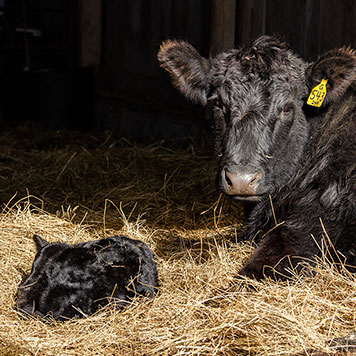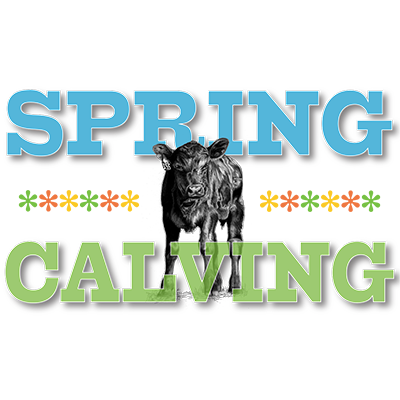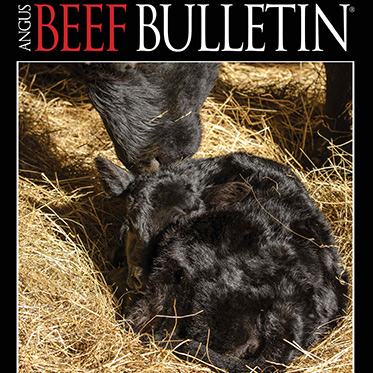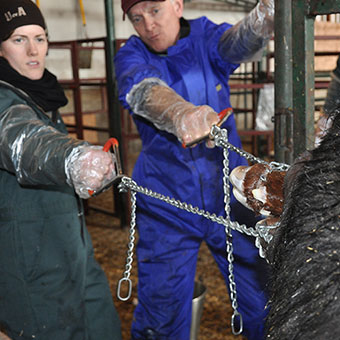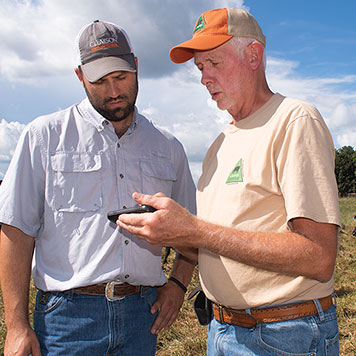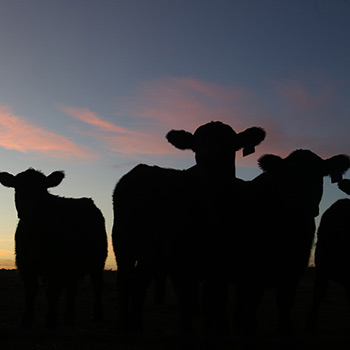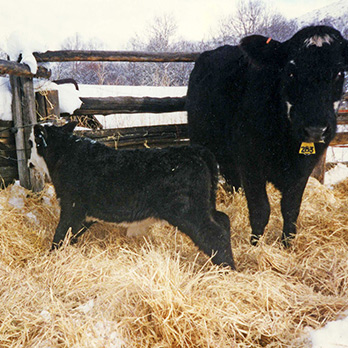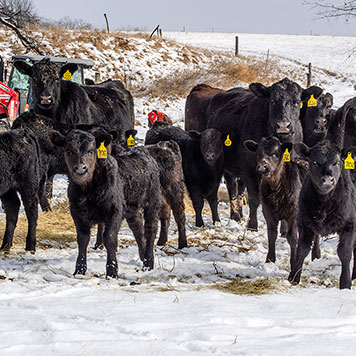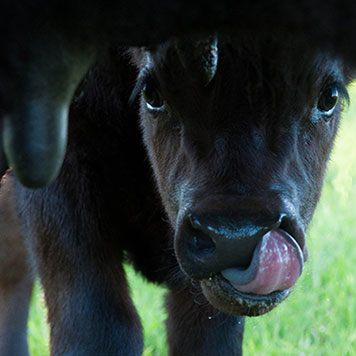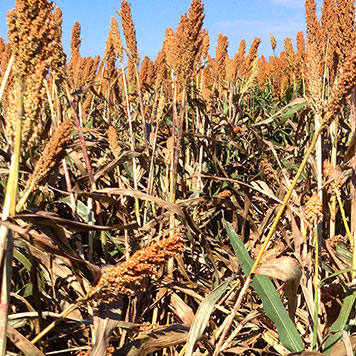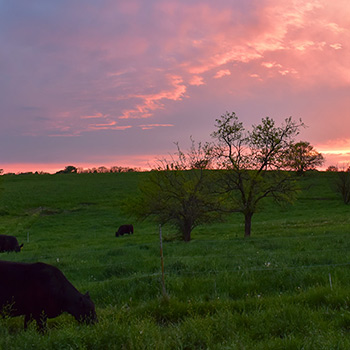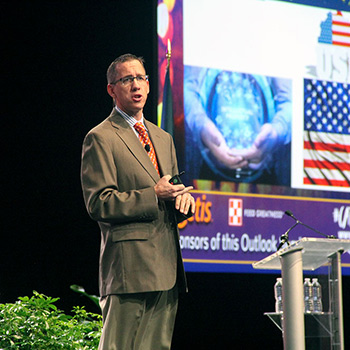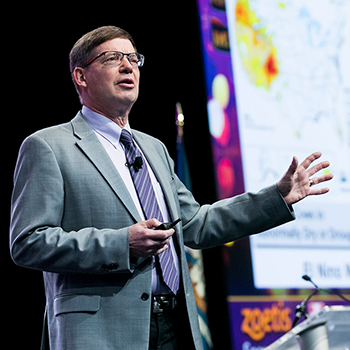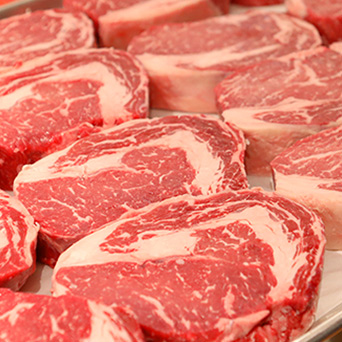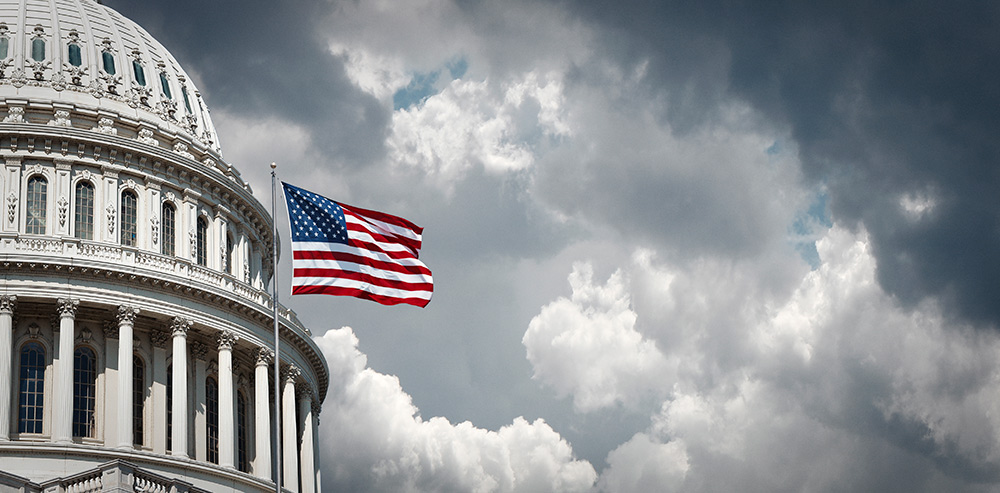
D.C. Issues
Effects from shutdown and policy discussed.
“Things are shaping up for what may be the prizefight of the century,” quipped Colin Woodall, during a policy forum at the recent Cattle Industry Convention in New Orleans, La. Woodall, who is the National Cattlemen’s Beef Association (NCBA) senior vice president of government relations, was referring to the verbal punches and parries traded by political opponents Nancy Pelosi and Donald Trump. It’s comical, but it can be troublesome, too. According to Woodall, the prevalence of political animosity in Washington, D.C., doesn’t help NCBA’s efforts to represent the interests of the beef cattle industry.
“Having a divided Congress challenges chances for passage of meaningful legislation,” said Woodall. “That doesn’t mean there are no opportunities to better the business climate of cattle producers.”
Implementing member-driven policy is what Woodall and the association’s other D.C.-based staffers do — working with legislators and regulators on matters of concern to cattle folk. In the days and months ahead, Woodall expects to do battle on several fronts, including foreign trade, “fake meat,” government-recommended dietary guidelines and regulatory roll-back.
According to Director of Trade and Market Access Kent Bacus, trade is a perennial issue for NCBA. Securing fair-trade agreements with other countries is important because they remove tariffs and non-tariff barriers to U.S. products, including beef.
“We were concerned when President Trump withdrew from TPP (Trans-Pacific Partnership) and threatened to withdraw from other agreements. TPP has moved on, but we’ve been working on the renegotiation of others, like USMCA (United States-Mexico-Canada Agreement),” reported Bacus.
Explaining that this USMCA would replace the North American Free Trade Agreement (NAFTA), Bacus said it contains no major changes relative to beef. The agreement was signed last November, but must be ratified by the legislative bodies of each participating country.
“Some Democrats in Congress want some changes, they have said, so a vote for ratification will be no easy lift,” added Bacus. “That’s cause for some concern. We do not want to see this fail.”
While Mexico and Canada are important markets, Bacus said Japan remains the biggest export market for U.S. beef, for volume and value. Sales to Japan represent about 25% of U.S. beef exports, but the U.S. faces a 38% tariff, while its competitors pay a lower rate. According to Bacus, that’s why a Japanese trade agreement that would level the playing field remains a priority.
Director of Government Affairs Danielle Beck said NCBA was a vocal advocate for USDA to have primary oversight over the inspection and marketing of both vegetable-based and cell-cultured protein products sometimes referred to as “fake meat.” She explained that the still-evolving regulatory framework for cell-cultured meat products will include a role for the Food and Drug Administration (FDA), but NCBA did not want that agency in the lead.
“The FDA conducts infrequent inspections, and does not enforce label requirements,” stated Beck, noting that products that are imitations of specific foods are required to display the word “imitation” prominently on their labels. Beck said FDA has long turned a blind eye toward multiple rule infractions. As an example, she cited the agency’s failure to enforce labeling requirements for imitation milk products made from soy or almonds.
“We can’t stop ‘fake meat’ from coming on the market, but we can influence regulations for packaging, labeling and marketing it.”
Beck said the process for updating the government’s official dietary guidelines will ramp up in 2019. NCBA’s list of priorities includes working with the Dietary Guidelines Advisory Council to advocate for accurate, scientifically credible information, including beef’s positive role in a balanced diet.
Executive Director of Government Affairs Allison Rivera recounted some NCBA wins in Washington, including successfully influencing important elements of the new federal farm bill. Among them is the National Animal Disease Preparedness Program, including a foot-and-mouth disease (FMD) vaccine bank. The farm bill also offers enhancements to the conservation title, including increased funding for the Environmental Quality Incentives Program (EQIP), plus haying and grazing flexibility for producers participating in the Conservation Stewardship Program (CSP).
According to Rivera, NCBA and its allies succeeded in lobbying to exempt, temporarily, livestock hauler compliance with the electronic logging device (ELD) mandate’s overly restrictive rules pertaining to driver hours of service. Rivera said NCBA will continue to work for a long-term solution allowing livestock haulers more flexibility.
“The need to consider animal welfare is what makes livestock haulers different,” stated Rivera, emphasizing the need to avoid having animals on trucks for excessively long periods. Adjustment to hours-of-service regulations could prevent incidents where loaded trucks are put out of service during a required driver rest period, or animals are put at risk when offloaded for a rest period and then reloaded to continue transport.
On the environmental front, NCBA staffers reminded the audience that progress has been made in correcting the regulatory overreach of the Environmental Protection Agency (EPA). More specifically, revisions have been made to the Waters of the United States (WOTUS) rule, which defines those bodies of water over which the government has jurisdiction. The revised language returns regulatory focus, primarily to navigable waters. NCBA will continue efforts to refine the far-from-perfect rules and will be ready for expected court challenges to a less extensive WOTUS rule.
Other targets NCBA has identified for continued infusions of common sense include the Endangered Species Act rules for designating species and determining critical habitat. Also sought are adjustment to federal grazing regulations allowing more management flexibility for public lands ranchers, including use of fuel reduction measures and invasive species control.
NCBA Chief Environmental Counsel Scott Yager says there is cause for optimism in the Trump administration’s efforts to rein in regulatory agency personnel who may have been pursuing personal agendas or actions exceeding those prescribed by law. NCBA favors implementation of attitude adjustment across all federal agencies.
“We will remain engaged in the fight to hold federal agencies accountable and working within the limits of their authority,” said Yager.
Editor’s note: Troy Smith is a cattleman and freelance writer from Sargent, Neb.
